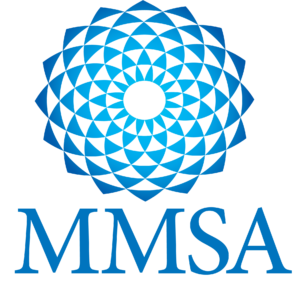At the National Summit for Successful Out-of-School STEM Learning, held in Washington, DC June 3-4, MMSA’s Dr. Sue Allen presented our work focused on increasing youth engagement in out-of-school STEM, as part of a panel of national experts discussing “Expanding Access to STEM Learning.” Conference information is available online, and you can watch the video here.
Expanding access to the underserved rural population of youth in Maine is a key focus of both the NSF-funded STEM Guides project and the Reach Center project.
The panel, moderated by Cary Sneider, National Research Council committee member, included Dr. Allen; Saskia Traill, Vice President for Policy and Research at The After-School Corporation; and Maria Cabrera, Community Relations at Museum of Science, Boston.
The two-day workshop, hosted by the National Research Council’s (NRC) Board on Science Education, featured showcasing and discussion of successful out-of-school STEM learning, with a particular focus on youth programs. The presentations, along with previous NRC reports and evidence from a broad range of fields, will inform the committee’??s development of a concise primer on successful out-of-school STEM learning for policy makers, youth development and education organizations, and private industries that support STEM education.
Participants attempted to characterize the “best practices” that research has shown lead to success, and they discussed how to create a positive interplay between school and out-of-school STEM learning experiences. Dr. Allen shared the work of two MMSA projects that have already engaged hundreds of rural youth in out-of-school STEM activities, and shared MMSA’s experience working with community-based programs in rural areas.
Rural youth often have limited access to STEM resources. A report from Change the Equation, “Lost Opportunity,”? found that youth in rural settings have several strikes against them: less access to challenging classes, qualified teachers, learning resources, role models, and STEM community resources. Rural youth were half as likely to participate in outside-of-school STEM programs. Dr. Allen discussed in her talk the challenges faced by rural youth in Maine, and how MMSA projects have addressed them.
“We focus on STEM assets that are available where they are,” said Dr. Allen. In addition to local physical resources, STEM experts, and organizations, Maine has a unique strength in the Maine Learning Technology Initiative’s one-to-one laptop program for all middle school and many high school students. This gives better access to online resources, although broadband Internet access remains a key element.
MMSA’s model relies heavily on personal human connections, with community-embedded STEM Guides working directly with youth to help them find available STEM programs and activities, including how to search current databases of STEM resources to find people, places, and events that interest them.
Emphasizing the key importance of partners such as 4-H and libraries, Dr. Allen shared several key lessons gleaned from this work to date:
1) Building a system of community-based STEM Guides takes time, but builds exponentially as word of mouth increases.
2) Rural communities tend to be stable and bonded, so when a project gets community commitment it tends to be extensive and long-term.
3) The particular choice of STEM Guides (the individuals making the connections with partners and youth) is key to success; the personal element is paramount.
As a result of this ongoing work, MMSA has:
1) Doubled the number of science clubs in local target regions, called Hubs.
2) Introduced the NSF-funded national program “Teen Science Cafe” locally, which has been popular among youth.
3) Developed strong connections with community partners.
4) Expanded statewide access to existing programs, including Hour of Code and Scratch Day, reaching hundreds of young people


